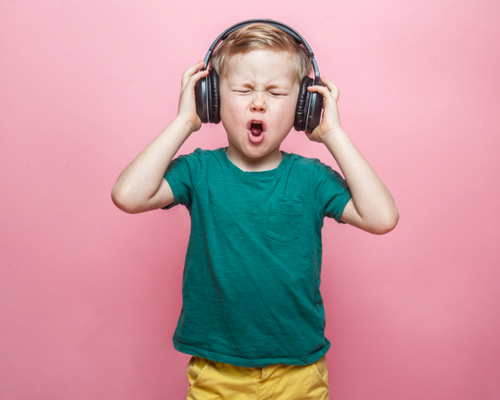-
Adjust the volume of your radio or TV: A good rule of thumb is that the volume is not too high if others around you can still understand you without talking loudly.
-
Keep an adequate distance from sound sources: The closer you are to a loud sound source, the more damaging it can be to your hearing. Avoid standing too close to speakers or sound boxes and try to keep at least 2 meters away. At large events or festivals, it is wise to change positions frequently to vary the distance from the sound.
-
Choose high-quality hearing protection: Custom-made earplugs may be a bit more expensive, but they are well worth the investment, especially if you regularly go to concerts or work with noisy machinery. They are also more comfortable than regular earplugs.
-
Avoid noisy environments: Try to avoid places with a lot of noise as much as possible. If that is not possible, make sure you wear earplugs to protect your ears.
-
Give your hearing a rest: Your ears also need a rest from time to time. Allow them at least 24 hours of rest after being exposed to noise. During this period, avoid loud music and noisy places. If you are at a multi-day festival, find a quiet place regularly and wear earplugs.
-
Invest in quality headphones: Traditional earphones sit close to your eardrums and can damage your hearing more quickly. Don't turn up the volume above 60% of maximum and don't listen for more than an hour at a time. Make sure fellow passengers on the bus or train cannot hear what you are listening to.
-
Be careful during pregnancy: During pregnancy, you need to protect not only your own hearing, but also that of your unborn baby. Your belly and amniotic fluid only muffle sound to a limited extent, while at a concert you are easily exposed to 100 decibels. This can be harmful to the development of your baby's hearing.
-
Protect your children's hearing: Earplugs are usually not suitable for children. Instead, use hearing protection headphones to protect their sensitive hearing.
-
Know that smoking can make hearing damage worse: Smoking can have unexpected effects on your hearing because it affects blood vessels and can reduce blood flow. This can worsen hearing problems or lead to impaired hearing in the long run.
-
Pay attention to warning signs: If you experience hearing loss, tinnitus or whistling sounds for more than 24 hours, consult an ENT doctor immediately. He or she can examine your symptoms and discuss treatments for hearing loss with you. Do not wait too long, as delays can reduce the effectiveness of therapy and medication.





